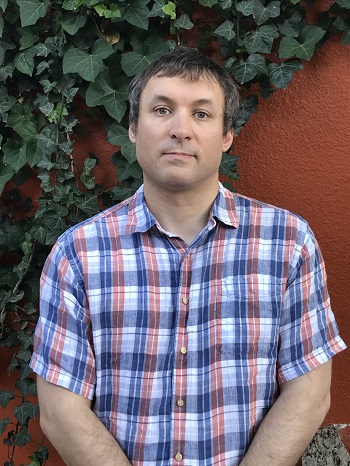
Notes of an Associative Reader
Contributor’s Marginalia: Peter Vertacnik responding to Ernest Hilbert’s “Vertebrate”
Sound comes first. I’ve read this poem out loud over a dozen times. Like the pilot whale of its extended simile, it communicates through a kind of echolocation. Even mute skimming allows its speech to seep in, as through a water-logged ear. Line after line, words call to each other in their muffled way: “fossil” to “invisible,” “gulls” to “bulbs,” “vaults” to “caught,” “hibiscus” to “lettuce” to “hiss,” “purslane” to “spine.”
***
Slant melody, but melody still. Reading “Vertebrate” I am reminded, perhaps oddly, of Camille Saint-Saëns’ final works, sonatas for oboe, clarinet, and bassoon: light melodies when compared to what was rampant then—Stravinsky’s dissonance, Ravel’s amputated concerto—but not slight, composed for the hollow, reeded bones of woodwinds. “At the moment,” Saint-Saëns wrote to his friend, Chantavoine, in April, 1921, “I am concentrating my last reserves on giving rarely considered instruments the chance to be heard.” And so may this poem for its lounging man, for its stranded, stripped skeleton.
***
“Smothered now by common purslane, sinking / Hiss of sand that slowly swallows the great spine.”
Stop thinking about “Ozymandias!”
***
But it does send me back to other poems. It scuffs the set surface of my mind with its associations.
Pilot whales are more dolphins than whales, I tell myself. And yet two (very different) whale poems occur to me almost immediately: A.D. Hope’s “The Cetaceans” and W.S. Merwin’s “For a Coming Extinction.” And when I read, in the latter poem, “When you have left the seas nodding on their stalks,” I am sent back to “Bumped by newborn bulbs of sea hibiscus.” More muffled connections.
I think, too, of Milton’s epic simile from Book 1 of Paradise Lost, that of Satan lying chained on Hell’s burning lake—but also of “The Pilot of some small night-founder’d Skiff” so close to a danger he doesn’t recognize. That’s a bit of a stretch, another part of my brain complains, though I continue reading.
“And longing, and an essential flicker / of life’s movement and radiance ran through—” reminds me of E.A. Robinson’s sonnet of fragile consecration, which in turn recalls George Crabbe’s heroic couplets. Tall stacks of books extend their varied spines (spines made of spines!) precariously higher beside me.
***
Couplets like vertebrae!
Couplets like vertebrae!
***
Some poems I covet for a line or a rhyme-pair, for a sly turn of phrase or metaphor. But my envy for “Vertebrate” feels encompassing; the temptation to scavenge is keen.
***
A Sunday evening decades ago. Late fall or early winter. My father dozes on his side in front of our fireplace. The carpet on the living room floor is deeply worn, even singed in places near the hearth by the escape of errant sparks. Light vaults from the flames’ essential flicker behind a mesh-iron screen. Even lying down he seems giant, his vast flannelled belly sloping out from his spine, both mountain and shadow. But as the burning logs crackle at random so too will his hip when he rises soon to finish his nap on the recliner. He’s much older than my friends’ fathers, mid-fifties and graying towards the sparseness of age, work and time curving his vertebrae. When he sits at the dinner table or in backyard shade, his stories still swarm, but his breathing now is filled with the hiss of embers-to-ashes.
